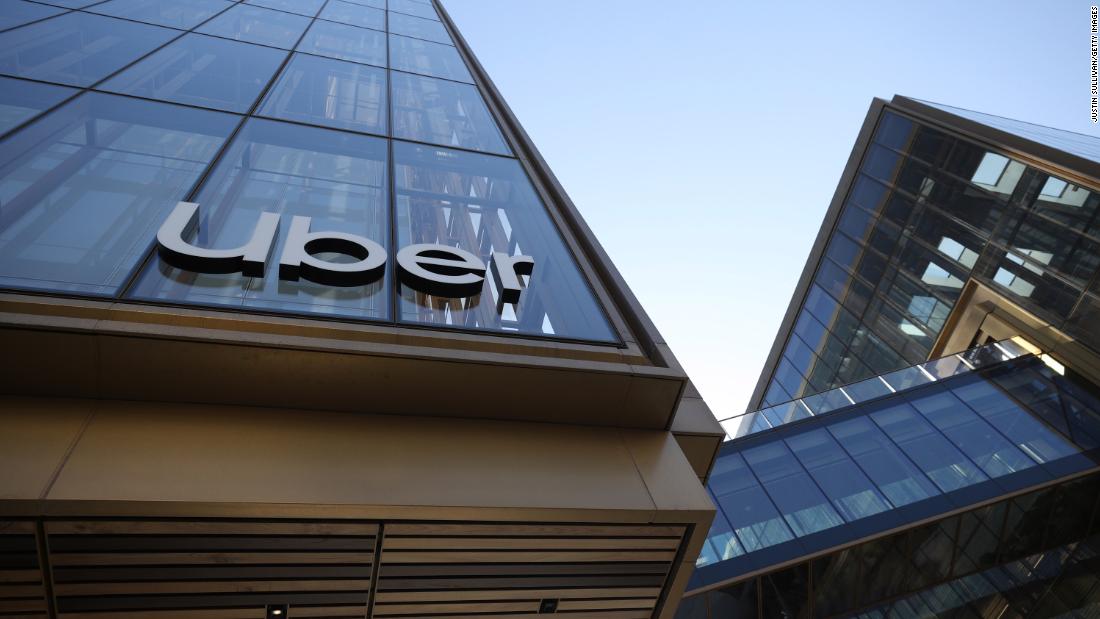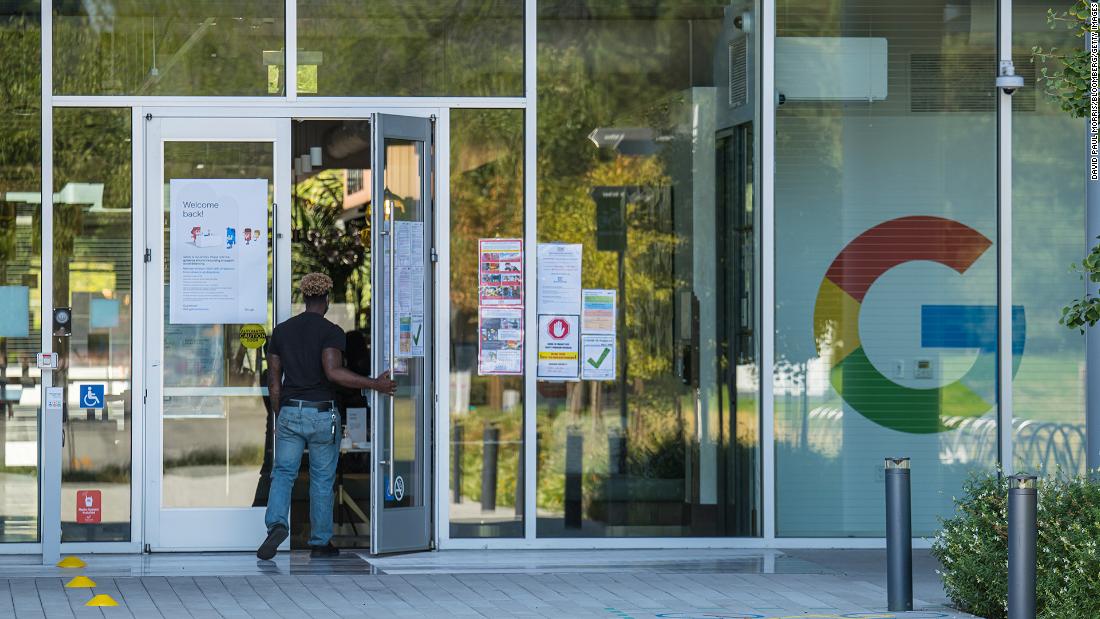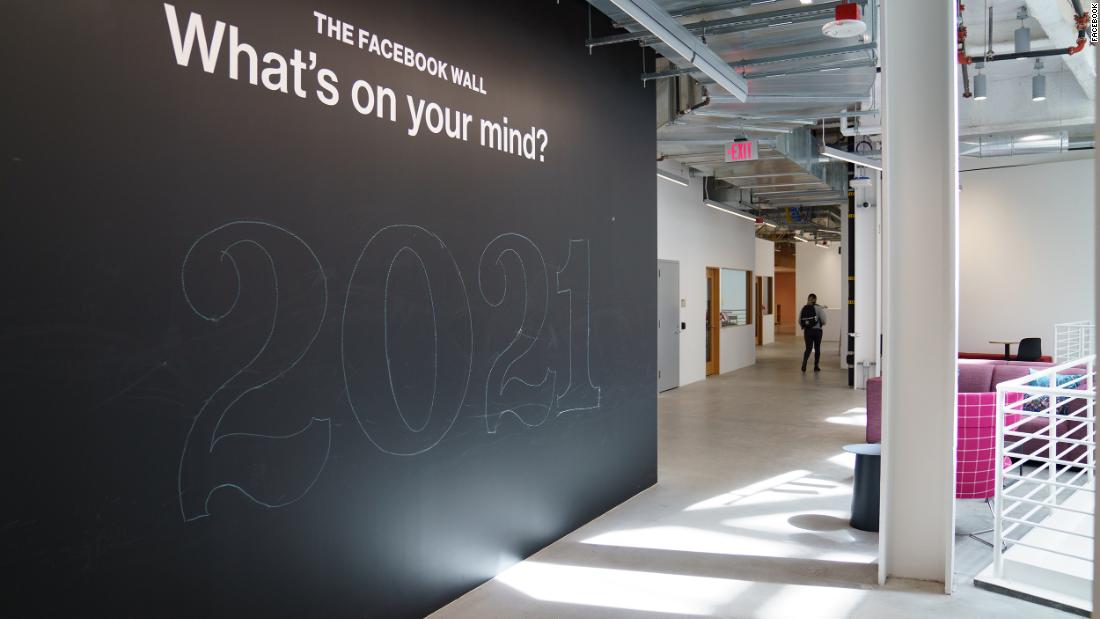After 4 months of working from the house through the pandemic, Reeba Akram determined to vary the place house was.
Akram, who works for Google, moved along with her husband and two younger youngsters from Los Altos — a 15-minute drive from the corporate’s Silicon Valley headquarters — to Dallas, Texas. The most important purpose for the transfer, she stated, was the value of the dwelling.
“We have been paying thrice the mortgage of our home that now we have right here in Texas, however we had one-third of the house,” she stated. Her selection of the place to dwell is now “the query of the 12 months,” she says, with Google’s September deadline approaching for workers to resolve between shifting workplaces, coming again or staying distant.
Akram is a part of a large tech exodus from the San Francisco Bay Space, with the tech hub’s greatest corporations, together with Twitter, Fb, Google, and Apple, among the many first to shift to remote work last year through the pandemic. Some staff has moved to completely different corners of the nation, whereas others — the vast majority — have merely moved elsewhere within the state or to suburbs a number of hours away.
A few of these relocations are extra everlasting than others, as corporations and staff begin to reckon with the form of workplaces they need after greater than a 12 months of working from house. The tech trade and its greatest corporations are rising as pacesetters on that entrance, having pioneered several aspects of modern office culture for years earlier than setting the tone for a shift to remote work when the pandemic started.
However the tech expertise that Silicon Valley corporations compete for has unfold out throughout the nation over the previous 12 months, and the pandemic has laid naked how a lot of their jobs can in reality be achieved remotely. With greater than half of US adults fully vaccinated and a broader reopening on the horizon, lots of these corporations are determining how a lot distant work they will proceed to permit, and staff are pondering more durable about how a lot they need.
The consequence may have a big effect on Silicon Valley corporations that spent billions on campuses and perks to maintain staff at work so long as doable, and likewise on different huge cities who’re vying to draw expertise away from the heartland of the tech trade.
Pros and cons
Simply because the tech trade led the best way in transitioning to distant work, its high corporations are offering early templates for bringing staff again to the workplace (or not).
“Our [employees] even have very completely different perceptions about working from the house — some discover it simpler to separate work life in the event that they’re within the workplace, some individuals truly discover it simpler to juggle if it is a house,” Nikki Krishnamurthy, Uber’s chief individuals’ officer, advised CNN Enterprise in an interview. “I do not suppose we’d have had these insights if it hadn’t been for the pandemic.
“Uber began bringing staff again to its brand-new headquarters, in San Francisco’s Mission Bay, for the primary time in late March — a extremely publicized workplace transfer years in the making that was additional delayed by the pandemic. It is given them till September to return to their pre-pandemic areas, after which they will be required to be within the workplace a minimum of three days every week.
Krishnamurthy says the corporate selected that path after contemplating choices to stability productiveness, engagement, teamwork, and adaptability, whereas additionally retaining its fast-moving tradition. A survey of Uber staff in September final 12 months confirmed 75% would like a hybrid mannequin the place they got here into the workplace a number of days every week.
“You would possibly optimize extra for flexibility, slightly bit broader attain for expertise wherever, however will you quit your magic?” she stated. “And we simply did not wish to quit our magic.”
Uber’s inside surveys confirmed 75% of staff desire a hybrid mannequin, the place they arrive in a number of days every week.
Fb says staff will typically be requested to return to their present workplace, although they’ll switch to roles primarily based in one other location. “There may be additionally an choice for workers in eligible roles to use for long-term distant work,” the corporate added in a press release. “We do not see vibrant workplaces and wholesome distant work as a tradeoff — we imagine these can co-exist and be unified by one cohesive worker expertise.
“Twitter has advised staff they’ll work remotely “forever” in the event that they so select and their function permits it. Apple, which reportedly began bringing workers back as early as Could final 12 months, didn’t reply to requests for remark.
Google staff all over the world will proceed working remotely till September, after which they’ll select between coming again to their pre-pandemic workplace, understanding of a Google workplace in a special metropolis or completely working from wherever if their function permits it, CEO Sundar Pichai said in a note to employees earlier this month.
Pichai stated he expects 60% of the corporate’s world workforce will return to their pre-pandemic workplaces a number of days every week, whereas 20% will transfer to a special workplace and the remaining 20% will do business from home. It is a slight departure from Google’s previous plan wherein all staff would have come into the workplace three days every week — much like Uber’s.
The tech trade may appear well-positioned for distant work indefinitely but it surely has additionally spent years constructing a tradition of collaboration and innovation that it will likely be loath to surrender, spending untold billions on enormous workplaces and perks like free meals, gyms and nap pods that persuade staff to spend extra time there than they do at house.
Nicholas Bloom, an economics professor at Stanford College whose analysis has extensively centered on distant work, says a hybrid mannequin just like the one Uber is adopting will more likely to change into extra of a norm.
“It’s arduous to give you new concepts and merchandise working absolutely distant,” he stated. “Publish pandemic that won’t change as [tech] staff are inclined to work effectively when a minimum of a part of the week they’re collectively.”
Battle of the tech hubs
It is not simply staff making huge strikes. Earlier within the pandemic, there was a minor exodus oftech companies and executives from the Bay Space to different cities — with Florida and Texas rising as notably well-liked locations.
Hewlett Packard Enterprise (HPE), a descendant of the corporate credited with beginning Silicon Valley, introduced in December that it might transfer its headquarters to Houston. Oracle, one other longtime Bay Space powerhouse, introduced a transfer to Austin later that month. Excessive-profile individuals from the region, together with Tesla (TSLA) CEO Elon Musk, Dropbox (DBX) CEO Drew Houston and famend Silicon Valley investor Jim Breyer have all moved to the Texan capital in latest months.
In an op-ed for CNN Business hailing Austin as an rising tech vacation spot, Breyer cited the town’s “tradition of interdisciplinary collaboration” in addition to its “comparative affordability, out of doors tradition, {and professional} growth alternatives.”Miami mayor Francis Suarez has spent months courting tech entrepreneurs and traders, with some success. Founders Fund, the enterprise capital agency co-founded by Peter Thiel, reportedly opened a giant new workplace within the metropolis, whereas Shutterstock founder Jon Oringer additionally moved there and began a agency aimed toward incubating and investing in startups within the Miami tech scene.
 Google invested billions in new workplace house even through the pandemic, and CEO Sundar Pichai expects 60% of staff will return to their pre-pandemic workplaces.
Google invested billions in new workplace house even through the pandemic, and CEO Sundar Pichai expects 60% of staff will return to their pre-pandemic workplaces.
However there are indications the exodus from Silicon Valley could also be considerably exaggerated. Google committed more than $1 billion earlier this 12 months to increasing its California workplaces, whereas Apple has reportedly leased six new buildings within the Bay Space metropolis of Sunnyvale that may accommodate as much as 3,000 staff.
A report in March by funding agency Telstra Ventures stated 96.9% of startups stayed within the Bay Space, and VC investments elevated 4% from 2019. “The Bay Space will proceed to be the epicenter of tech for years to return,” Mark Sherman, normal companion at Telstra Ventures, wrote within the report.
Choices to make
It is also unclear how choices made through the worst of the pandemic would possibly stick because the financial system and other people’s lives reopen.
Jasmine Shah moved to Los Angeles, the place she grew up, final October. Earlier than the pandemic, Shah, who works for the software program firm VMWare, would drive from her house in San Francisco to the agency’s workplaces in Palo Alto, a commute she described as “very arduous.”
“The pandemic has blasted this complete concept that it’s important to be within the place you might be,” she stated.
Nonetheless, Shah says her exit from Silicon Valley has at all times felt non permanent — numerous her stuff continues to be in storage in San Francisco. Finally, she says, if you wish to work in tech then the Bay Space is the place the perfect profession alternatives are. It largely stays tech’s greatest energy heart and the massive weapons equivalent to Google, Fb and Apple nonetheless have their huge headquarters there. However she’s not sure about dwelling there long run due to how prohibitively costly it’s.
“Truthfully, I do not know,” she says. “I am seeking to change numerous issues.”
There are additionally indicators the area is already beginning to bounce again. A report last month by actual property agency CBRE stated rents in main US tech hubs, together with San Francisco, San Jose, Cupertino (house to Apple) and Mountain View (house to Google) seem to have bottomed out and have began rising once more this 12 months.
And given how a lot the pandemic has accelerated our dependence on expertise, main tech companies are more likely to be laying the groundwork for a spurt of additional development, Colin Yasukochi, director of CBRE’s Tech Insights Heart, advised CNN Enterprise.
 Fb says it would not see “see vibrant workplaces and wholesome distant work as a tradeoff.
Fb says it would not see “see vibrant workplaces and wholesome distant work as a tradeoff.
“Krishnamurthy stated Uber thought of all doable choices earlier than deciding on its three-days-a-week strategy, however fears a draw back to Silicon Valley corporations — notably smaller startups — that resolve to go absolutely distant.
“I fear that in some unspecified time in the future that they are going to lose productiveness as a result of they have not constructed these relationships,” she stated. “When you begin that means, it is actually arduous to vary tradition … and I simply surprise if the pandemic and these behaviors which have hardened will trigger individuals to suppose they’ll do all of it distant after which nonetheless wind up hitting that brick wall.
“Along with her deadline to resolve to strategy, Akram has a long-running professionals and cons listing. Google’s new coverage provides extra causes for her to maneuver again to California, she says. If she will keep in a extra inexpensive space, she’s prepared to drive slightly farther to get to the workplace a number of days every week.
“I used to be positively actually blissful to see that they have been listening to what the demand was on the market and that they have been open to altering issues,” she stated.



